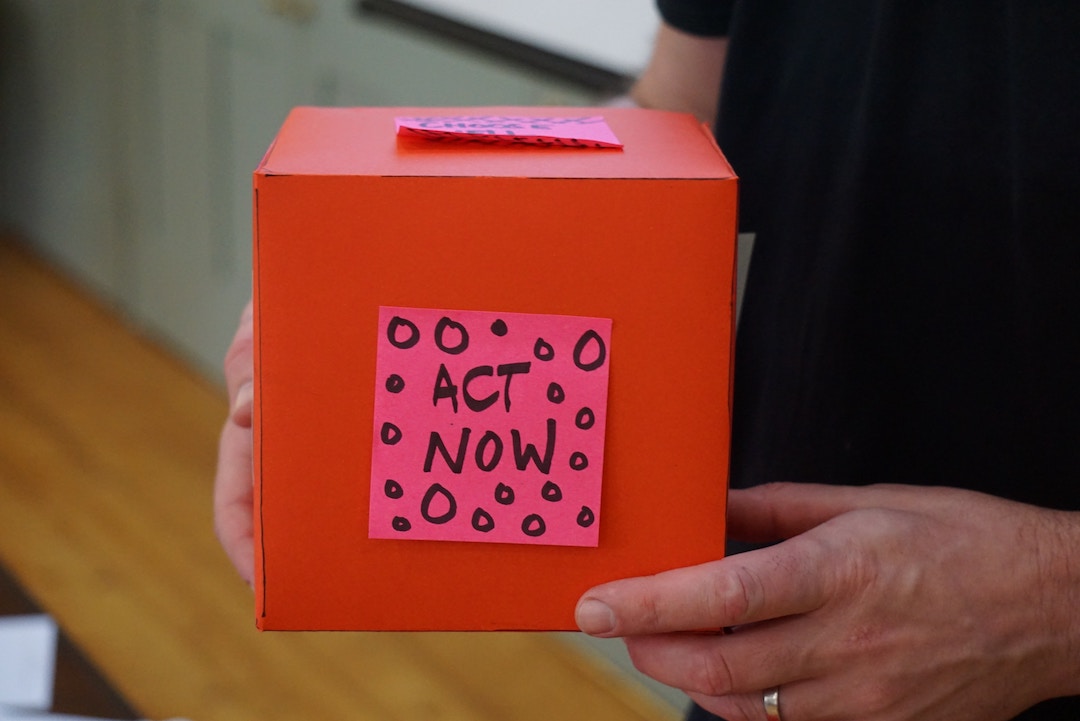How To Make Sure Your Nonprofits Marketing Campaigns Are Eco-Friendly
With only 11 years to save the planet from climate collapse, it’s no wonder that environmental impact has become a priority for nonprofits and their supporters alike.
Even if your charity isn’t aimed at an environment based cause, it is still important that you ensure your campaigns are eco-friendly. Not only will this help the planet but also improve your donation numbers. Let’s face it, no one wants to donate to a nonprofit that isn’t environmentally responsible.
It is important to start by making an audit and consistently measuring your carbon footprint, so that you can ensure you’re improving and can reduce it as much as possible.
We understand that marketing is essential for your nonprofit to receive donations and keep doing good, so there is a balance to be found. think about your nonprofits priorities, goals and resources and use this article to find realistic ways you can make you marketing eco-friendly and effective.

8 Ways To Make Your Marketing Campaign Eco-Friendly
1. Be Transparent
It’s all well and good wanting to present your nonprofit as eco-friendly, but if it isn’t true this will get you in the bad books of many potential supporters.
Being transparent means making it known what you are doing to be eco-friendly, and ensuring supporters know it is a priority of yours. However, you cannot lie, or hide aspects that may be less responsible.
On the bright-side, if you are open about the areas of your campaign you wish to improve, people are likely to suggest ideas, helping you become more eco-friendly and connect with your supporters at the same time. Use your marketing campaign to educate others on eco-responsibility, and let them educate you.
2. Connect With Local Businesses
Local businesses are often a more sustainable (and more accessible) option than big co-corporations, whose environmental damage will generally be much higher.
Big businesses often produce much more waste, and as they often sell internationally, the products will have travelled a long way (so have a higher carbon footprint), and the production line may not be ethical (or easy to trace).
Not all local businesses are environmentally conscious, so make sure you keep an eye out for businesses that share your priorities.
If you’re looking to partner with a business, for example, to collect donations in their store, working with a local business can show you prioritise lowering emissions, and only support businesses who share this priority. Keep this in mind when buying anything you need for running your nonprofit, buy as locally as you can to lower emissions.
3. Ask For Recycled Donations
All nonprofits need financial donations, but if your nonprofit needs other donated items to fulfil its cause as well, then look into ways you can access recycled donations. This could include accepting unsold food from restaurants and shops, unwanted clothes and school supplies, unwanted technology etc.
This will reduce the individual waste of your donors, giving them an eco-friendly way to get rid of unwanted items, and means you don’t need to buy items new, which often comes with environmental consequences from production and shipping.
So many nonprofits already use recycled/unwanted products to help people and reduce waste, for example Smalls for All accept used (but in good condition) bras to send to women and girls living in poverty.

4. Reduce paper use
The paper and pulp industry is the fourth-largest producer of greenhouse gases in the US, and 4 billion trees are cut down for paper each year! While paper is better than other materials e.g. plastic, it’s clear, cutting paper use is essential to an eco-friendly marketing campaign.
Not only is online marketing essential for modern nonprofits to access supporters and donors and to spread your message, it is also much better for the environment! Digital marketing reduces the need to spread information via leaflets and letters, all the information people need is online!
Of course, email marketing isn’t free from environmental consequences, as it’s often powered by fossil fuels. If an email campaign isn’t done effectively, it could cause an unnecessarily large carbon footprint.
Try to find the balance that suits your nonprofit and minimise environmental damage. Check out our articles on social media and email marketing for nonprofits, to help you make sure your digital marketing campaigns are effective and you aren’t wasting energy.
5. Use Green Energy
Of course, going paperless is key, but it’s not perfect. While the impact from a small nonprofits online presence isn’t going to be huge, if you’re relying on unsustainable energy sources for your online presence you’re not doing the best you can for the planet.
Being eco-friendly is a priority here at Twenti, that’s why all of our hosting is run on 100% green energy.
6. Use Recycled Paper
If you’re still not convinced that you could give up your physical marketing, or for the events when you need some physical information, then make sure all your posters, flyers etc. are printed on recycled paper. The cost difference is often very little, and it will show supporters that you care about the planet.
Also, remember to keep an eye out for less obvious things, like using eco-friendly ink (0r no ink at all), and looking out for more eco-friendly packaging methods, for example using cardboard rather than polystyrene, and tying stacks of flyers/magazines with string, rather than wrapping them in plastic.

7. Avoid Travelling by Car or Plane
If your marketing plan involves speaking engagements and networking, then you need to make sure you’re not ruining all your eco-friendly credit by travelling there by car. Take the train, bike or walk to any events, or hold video calls for meetings that don’t need to be held in person.
Another great alternative to travelling to speaking engagements may be making a video of your speech, this way you can share your message much further, and without growing your carbon footprint.
8. Eco-Friendly Incentives
Providing gifts to donors to thank them for donating, or selling items were all proceeds go to your cause, is a great way to increase donations. However, it’s often not the most eco-friendly.
Try to avoid selling/gifting plastic products, 6.3 billion metric tons of plastic is currently sitting on our earth as waste, and that number increases every day, so best to avoid adding to it!
Try to offer gifts which are recyclable and have a genuine use to your donors (so won’t go straight to waste.) For example, a calendar printed on recycled paper, or reusable cups and bottles made from safe, eco-friendly materials such as bamboo.
You could even reward them with knowledge, for example sharing the story of a person your nonprofit has helped, an ebook, or simply a personalised and heartfelt thank you email.

Green Online Marketing
One of the reasons we at Twenti are so passionate about online marketing is because it’s a great option to get your nonprofit noticed and reduce waste, it helps you and the planet!
Take a look at our offers and services pages to see how we can help you develop an online marketing campaign that will help you reach potential donors and hold on to your supporters.
Sustainability
Sustainability is a priority at Twenti, that’s why we use 100% green energy for our hosting, and we plant a tree a year for every business/nonprofit we work with. We aim to educate others on how to be sustainable, both in their business and their day to day life, so our blog is full of helpful articles on being eco-friendly, like our guide on simple changes to make to save the planet!
Ready to reach thousands of new donors online?
Related Articles
5 Reasons You Should Use Social Media to Grow Your Small Business
Social media has many uses: engaging with customers, selling products, and of course promoting your brand. Within the last few years, social media has taken off as a central influence in consumer’s buying habits – and it’s time to leverage this.
7 Reasons Why SMEs Say They Don’t Need a Good Website – and 7 Reasons Why They’re Wrong
All businesses can grow online, no matter their size. We explain why a reliable and informative website should be a priority for SMEs – even if you think you are too busy.
A Quick Guide to Google My Business for Startups and SMEs
Google My Business has revolutionised SEO and digital marketing. Here’s how to get a head-start on it.
£8,000/month of free ad credit?






